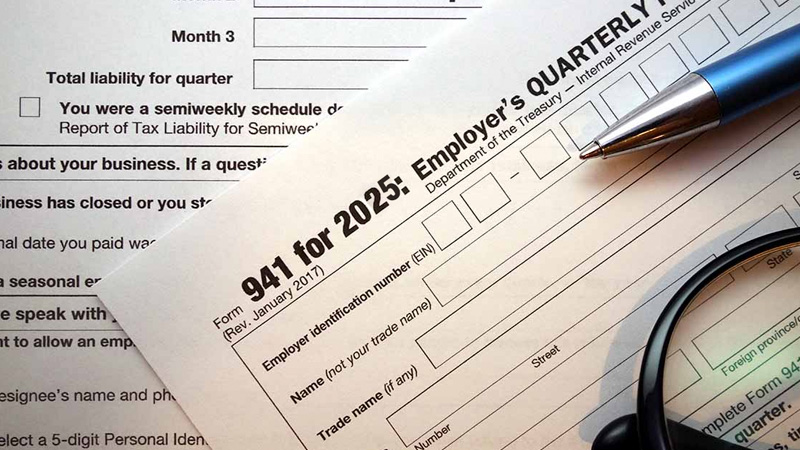
If you're an employer operating in the United States, filing Form 941 is a mandatory legal obligation. This quarterly return is used to report key federal payroll obligations; including federal income tax withholding, as well as both the employer and employee portions of Social Security and Medicare taxes. Failing to file it accurately and on time can result in serious IRS penalties and compliance issues.
Employers must file Form 941 every quarter by the IRS-mandated deadlines. These due dates apply to all U.S. businesses with employees and are strictly enforced:
Note: If a due date falls on a weekend or federal holiday, the deadline moves to the next business day.
Every employer who pays wages subject to federal income tax withholding, Social Security, or Medicare taxes is legally required to file Form 941.
Even if you didn't pay wages during a quarter, you're generally still required to file a (zero return) unless you've received IRS approval to file annually using Form 944.
Filing Form 941 correctly is essential to stay compliant with the IRS. Even small errors can lead to penalties, delayed refunds, or IRS notices. Here are the most common mistakes and how to fix them promptly.
Staying compliant with IRS Form 941 isn’t just about avoiding penalties; it’s about maintaining trust, financial accuracy, and operational integrity. By knowing your deadlines, filing correctly, and avoiding common mistakes, you protect your business from audits and costly fines. Always stay proactive, keep detailed records, and when in doubt, consult a payroll professional or tax advisor to stay on the safe side.
© Copyright PAYPRONEXT. 2025, All Rights Reserved.